|
If I may be so bold as to reference my last blog post from 2022, I am still watering those writerly flowers of mine.
The urge to write “it’s been more than a year, and yet” is compelling, but that wouldn’t be completely true. This year has not passed without progress, and as we near its end, I am beginning to prune the months passed. Starting with my 27th birthday in May. Leading up to my birth month, and with friends turning 30 all around me, it was difficult to put that countdown out of my mind. I’m still far enough away from the milestone to not be particularly bothered by it, but whether it’s my birthday or the new year, I always find myself reflecting on what I’ve accomplished and what I hope to achieve next. That’s my nature, and I know I’m not alone in that constant push forward. So with 30 on the brain, looming just 3 years away… I revisited my garden of writing and took a hard, long look at it. I put together a spreadsheet of the ideas I wanted to move forward with—a compilation of fiction novels, scripts, poetry collections, a few hybrid pieces—and bought a monthly calendar that will see me through the next several years. I crunched numbers, threw them away, considered them again, and went with my gut. I gave myself the gift of 3x3x30. 3 pieces of writing, in 3 different mediums, by the time I turn 30 in May 2026. As of October 2023, I have written a handful of poems, jotted down a number of ideas, and added 50,000 words to the first book in a four-book series. I wrote those 50,000 words in July 2023 as part of Camp NaNo, which is known as a more flexible version of the original National Novel Writing Month (NaNoWriMo) in November. Camp NaNo in July was the first time that I ever truly competed in a NaNoWriMo event, and this month, I am tackling the November iteration. Well, sort of. The reason I never participated in NaNoWriMo in the past was because school always kept me booked full. I allowed it, others encouraged it, and it became a cycle impossible to break out of and away from. The years passed quickly as I earned a 2-year graphic arts program in high school, a double bachelor’s degree, followed by a master’s program complete with a teaching assistantship. Of course, not to mention everything else I piled on top of those pursuits, committees or work… I won’t lie, I looked forward to the gift of graduation, maybe more than most, to finally achieve and put to rest all that I had set out to do years before. It didn’t quite come together like that though. If anything, the bow on that present completely unraveled. Graduating with my master’s at the beginning of COVID did not result in the relief and excitement I expected. That any of us expected, really. Sometimes I still feel that discombobulation when I look at my professional development. On a more granular level, I especially felt it when looking at how my writing and publishing continued to stagnate, despite my best efforts to revisit the garden of writing wilting at my feet, year after year. That brings us to May, as that brings us to now. This month, my goal is to write 30,000 words toward the Next Life project I began drafting in July (for a total of 80,000 words) along with 30 poems toward a collection I hope to title “The Blueprints We Inherit.” Both of these projects—whether the fantasy romance book series or the poetry collection—are at once an unraveling and a revealing of parts of myself, my life, and all in it. I’m putting everything I’ve seen and experienced and dreamed into these pieces. I’m not sure how to explain it yet. They’re pieces still in progress, constantly evolving and iterating. There’s a catharsis in the creativity of it, of course. I thrive in that careful, combined space where connection and meaning happen. It’s why I’m always returning to the page. It’s why I’m drawn to different genres and mediums of expression. It’s why I’m still planting and watering those flowers, season after season.
0 Comments
Reading outside is one of my favorite pastimes. When I lived with my parents, I would read on the front porch or walk to a nearby park to sit at one of the open picnic tables. My first and third apartments featured a private balcony, one open to the Cincinnati sky and the other shaded by the balcony above. Having this secluded, shaded space was a must-have when looking for a house. I spent 2 ½ hours today grateful for every little leaf and balmy breeze, even with the soundtrack of a nearby, busy road nearly eclipsing the bugs and birdsong.
In August 2020, I decided to change my daily habits. Many of my close friends and family are intimately aware of this already. Now, 9 1/2 months into this journey of self, I realize I am 8 months strong with improved nutrition and 6 months consistent in exercise, despite an illness and vacation. As most of my friends, family, and acquaintances know, I’ve also been reading more since the start of 2020. However, my writing was intermittent at best and forgotten at worst. As my last post indicates, I’ve been working myself up to writing consistently again. The practice of writing 1,000 words a day has been a much larger task than I anticipated, in part because of when I started. Surprise, surprise: I expected too much of myself. I haven’t creatively written consistently in years and I was still recovering from a mild bout of COVID when I decided 1k-a-day was the route to take. In reality, I should have been leaning into my new and old good habits as I recovered, rather than starting new ones. So, what has May looked like for my writing? Well, I wrote for a few days before ramming into a wall of my own making, hitting it repeatedly for longer than I’d like to admit. I firmly believe in the quote, “Unrealistic expectations become unmet expectations,” so I’ve reconsidered my own over the past week and realized I was in need of adjustment. Overall, I wrote little in those first few days, some 1,300 words I have since scrapped once I realized that newfound direction for my novel was several degrees off. I’m always open to experimenting, to throwing out a plan and trying something different, but that new opening scene felt downright wrong. Its development revealed other considerations to me, which were worth considering, but that act of writing also thrusted me into what felt like outer space. I floated in this intangible anxiety, somehow too frozen to write yet grappling for answers. Answers only I could give. So I took a step back. I stopped writing. The guilt of stopping churned my stomach, my disappointment coating my tongue like ash, choking me up so much I couldn’t even speak of my own failure to write daily just days after declaring I would do so. This feeling festered, fermenting in my gut until I couldn’t take it, so what did I do? I willed myself to write. Sometimes the laptop sat beside me, open and wanting like a neglected guest, whereas other times I managed to refine paragraphs I’d already written. I felt remarkably less nauseous after those moments of revision, small as they were. They built confidence in me that I had the tools to accomplish my overall goals if I could just write already. This past week, I went from aiming for 1,000 words a day to not striving to achieve a certain amount, whether page or word count. I have noticed that I feel better for what I have written, but the inconsistency still grates me. This is not the writer I used to be. While I am well aware that I will never be that writer again, for good and bad, that doesn’t mean that this version of me is the type of writer I want to be. I do not accept this. Starting today, I’m focusing on keeping the habit. It won’t matter what’s produced or how it’s measured, only that I allow myself to write a little bit, every day, for the foreseeable future, until the very act of writing syncs with the natural rhythm of the other habits I’ve been keeping. I’ll try the antithesis of my former approach, in the hopes of more positive results. After all, in Atomic Habits—the open book pictured at the top of this post—author James Clear writes, “The task of breaking a habit is like uprooting a powerful oak within us. And the task of building a good habit is like cultivating a delicate flower one day at a time.” So deeply personal as writing is to me, I owe it to myself to slow down. I have been trying to uproot a forest of doubts, one that completely shadowed the flowers I’ve been planting. Each doubt deserves my care and attention, just as the flowers. “Words bounce. Words, if you let them, will do what they want to do and what they have to do.” -Anne Carson I have adored the above quote since my high school days, nearly a decade ago now. It is also revisiting this quote that I have realized, once more, my words have stilled. Words contain an inherent energy to them—it’s that same energy that allows us to connect and identify with what they create—but a writer must provide that momentum, initial and continuous, for actual creation. For actual connection. I lost my momentum as I grew older and my plate heavier. With hindsight, it’s easy to pinpoint when and why this happened. It slowed my senior year of undergrad, when I was working full-time in a high-stress but low-level management role, commuting to university to complete my double bachelor’s degree, and planning my wedding. This linguistic stillness pervaded the summer after graduation, leading up to my wedding and graduate school. My master’s program was all-consuming, and I naively allowed it to swallow me whole, which left me all the more bereft upon COVID’s arrival three months before my graduation. For years, I focused my energy in all these necessary directions, and I know now that I did not use my time as well as I could have. My priorities were right, but still somehow wrong, all at the same time. I did not care for myself, and I rarely created anything. The novel and movie ideas slowed, but never stopped. I just did. I began a slow re-immersion into writing again, months after my 2020 master’s degree completion, but it was a hesitant endeavor. I tinkered with story ideas on scraps of paper and forgotten notebooks. I half-heartedly tried to listen to writing podcasts, but dropped those rather quickly when they failed to hold my interest. I wrote a little, here and there—poetry in my iPhone’s notepad or on throw-away napkins, perhaps a scene of a novel scratched hastily in a composition notebook. It was all patchwork inspiration, fleeting and revealing. I realized that the same education which had pushed me beyond what I thought I could be, was the same experience I had allowed to hold me back from the very act of expression I loved so very much. Imposter syndrome, so the saying goes. A(n unwritten) tale as old as time. Others may know it as the Dunning-Kruger effect, a psychology term I came across in the introduction of On Writing and Worldbuilding Volume 2 by Timothy Hickson. The general hypothesis is that those who know less about a subject think themselves more capable, even sometimes overestimating their capabilities, while those who know far more about that same subject consider themselves incapable. I liken it to a paralytic awareness. Instead of fight or flight, freezing in the face of whatever it is that haunts you. I’ve spent over a year now working my way out of that paralytic state. In early 2021, I started with setting a goal for myself: read 52 books in a year. I aimed for what was realistic for me, and this proved effective in the wake of uncertain employment and my mother’s passing. A low goal was what I needed so the harder months didn’t crush my spirits. I knew, even if I didn’t reach 52 books in that year, that I would land on a number that would still satisfy me. I surprised myself by reading between 70-80 books by the end of the year. I remember being proud, posting about the achievement online well before the New Year, and thrilled at the support I received. In the nature of transparency, though, I have to admit that I intentionally pulled a Randy Pausch: it was a literary head fake, designed for myself. And it worked like a charm. I was reading more, yes, but halfway through the year, I was writing more, too. Some poetry. A handful of new novel and movie ideas. Most of my time was spent pre-writing, though. I started circling the already written pages of my trilogy by heavily revising the plot and re-examining the characters. What surprised me most was the immediate clarity of what wasn’t working with the previous draft. This awareness wasn’t paralytic, though. It was energizing. I rewrote the first few chapters of the aforementioned trilogy in September 2021 and quickly realized I wasn’t ready. There were too many questions of plot and character, for that first book and the two that followed. I also didn’t feel ready, as swept away with inspiration as I was. So I went back to the drawing board—notebooks, Google Docs, my home-office whiteboard—and leaned on a few of my writing friends. I had brainstorming discussions with one in particular, who helped me pick apart my new plot devices at every turn. As we dissected these new thoughts, I started putting together a list of books and articles I wanted to read before the holiday season crowded my schedule. Come 2022, I knew I had to get the ball rolling once more. I refused to return to linguistic stillness, to that paralytic awareness that threatened to stop me from creating again. I continued working on my trilogy. I refined my list of articles and blogs to read, also finding an impressive amount of academic articles that aligned with topics I was curious about. I even discovered new curiosities after stepping back and realizing my own lines of research. I let the curiosity push me further, buying a handful of books on writing that intrigued me--Outwitting Writer’s Block by Jenna Glatzer and On Writing and Worldbuilding Volume 2 by Timothy Hickson being just two—and rereading my favorite writing books from my teenage years, starting with Immediate Fiction by Jerry Cleaver. My goal was to immerse myself in the craft of writing as I had been as a teenager, consumed by creativity and its possibilities. My books and notebooks were never far away at that age: reading novels on the bike at the gym, stealing classroom moments to write in the closest notebook, being overcome by a sudden muse while in the shower or taking a walk… It was that very curiosity which led me to my diverse studies in graphic design, rhetoric, and creative writing. I sought to rekindle this new flame in me by paying homage to the first; I respected the work I did then, how well it worked for me, but reminded myself of who I had grown to be. The two will never be the same, and I am all the better for it. I’m still not ready to start writing again, but I know in my heart, it’s time. I want to draft all three books of my trilogy by the end of this year, and I cannot do that unless I move from pre-writing to actually writing. I have to conquer my fears and doubts to rebuild my creative confidence. Pre-writing has built some of this confidence back by reminding me that I have the knowledge and tools to solve the problems of my own making, but it’s not enough. I have to face the page. So this blog is my pledge, my official act of accountability, to solidify my intent to write 1,000 words a day starting today, May 1, 2022. Disclaimer: I will not be writing every day, but I will be writing most days. I have decided to set the expectation of a 75,000 word draft—50,000 words seems low given my genre, but 100,000 feels far too ambitious. With seven months left of the year, I have time to spare, so there’s no need to try to write each book in a month a la NaNoWriMo style. Instead, I’ve decided to allot 75 days—roughly two and a half months—for each book. Between books one and two, and two and three, I’ve planned for at least a week of rest and planning. I’ve captured those periods in the screenshot below. In addition to creating this schedule, I have created an Excel spreadsheet to track my efforts: how much I’m writing, when I’m writing, my overall word count, and more. I imagine the last 75 days will be the hardest, since I will be writing the final book during the holiday season. Nevertheless, by December 29, 2022, I will have drafted a complete trilogy!
I hope to chronicle my experience on my blog, if only because I miss writing one. I may begin posting on social media more as well, with snippets of writing (my own and others') that brings me joy. I have a few other ideas in the works, such as bringing back my previous Word Wednesdays, but I’d like to first settle into this new writing routine before adding other forms to it. We’ll see what happens. Like with my 2021 reading goal, I know even if I fall short, I’ll still land somewhere far closer to where I’d like to be. I have waited so, so long to announce this. A few months ago, the University of Dayton offered me a fully-funded teaching assistantship after I was accepted into their M.A. in English: Writing and Rhetoric program. There were other offers at hand, but I didn't want to announce my decision on social media until it was set in stone. I signed the contract today. So, I'm a Flyer now! It felt so good to finally sign that contract today. I've already registered for my courses, filled out the paperwork for Human Resources, and received my graduate student ID card. I'm thrilled to both continue my eduction and learn what it means to be an educator. So, I've got the best of both worlds. A few months ago, I drove to Sinclair Community College to give a speech about my time as a Sinclair student and my growth as a writer. It was the first time I had seen the University of Dayton since I was offered the teaching assistantship, so when I drove by it on my way to Sinclair—where my entire college career started—I cried. It felt full circle. I almost cried again today when I walked through campus, confused but amazed. I had no idea where I was going. In fact, I got lost twice. However, when I figured out where I was supposed to go, I wound up walking through a small garden between buildings. I entered under a tall brick arch, smelled the flowers in the breeze, and stopped to breathe it all in. I can't wait to spend the next two years there. So, I've been busy, but I'm back! As a few of you have noticed, my online activity has decreased overall since roughly February/March; I should have expected it, but I didn't realize how demanding my final undergraduate semester would be. I pulled more all-nighters in that one semester than I had for my entire first three years of college. It was rough, to say the least. But I plowed through it. After four long years, I earned my Bachelor of Arts in English in both Rhetoric & Professional Writing AND Creative Writing Hybrid Forms. Magna Cum Laude honors, too. Since I was nominated by English faculty to be an Arts & Sciences Marshal, I was lucky enough to wear red rather than black! I also got to sit in the front row. It was a day I'll never forget. Most college graduates tend to take time off, celebrate a little, once they finally finish. Immediately following graduation, however, more work began. Two editing projects, to be precise. The week of graduation, I started developmental edits on Danielle Koste's next book, What the Flower Says of Death. In late June, after she applied my suggested edits, I conducted line edits. This past week, I proofread the book one last time before sending it off into the wild (a.k.a beta readers). You can pre-order signed copies of What the Flower Says of Death now, and I've included the blurb below:
I'm absolutely bias, so I love the book. It also challenged me as an editor to remain emotionally distant due to the content and themes; it's easy to identify with Violet as a reader. The cover reveal is on July 31st, but as editor, I may have gotten a glimpse of it. It may be absolutely gorgeous. Possibly. So, be on the lookout for that! I enjoyed working on another one of Danielle's books these last few months, and I'm thrilled to be able to work on her next novels as well. As I've expressed to her on multiple occasions, editing her writing makes me a better writer. It's truly an honor. She was also kind enough to work with my schedule as well, because her book was not the only one I have edited so far this year. Some backstory: my final course for my Rhetoric & Professional Writing major at the University of Cincinnati was a Rhetoric & Professional Writing Capstone. While my Creative Writing Hybrid Forms Capstone included only undergraduate students, my Rhetoric Capstone included undergraduate and graduate students. I ended up working with mixed group of students to complete a client project (creating a website, some civil war panels, a few articles, and so forth) but I became close with our lovely group leader. She ended up inviting me to work with her on a nonfiction book project. Aside from my education and personal dabbling in nonfiction, I never had a professional opportunity to work on a nonfiction piece. Naturally, I couldn't pass it up. The untitled book, now planned to be called "They Call Me Nemo," is a hybrid memoir. The story is told in three ways; chapters detail his life story until the day he went to prison, letters display his daily life while incarcerated, and artwork depict his attempt to stay connected with his loved ones. This project was both hands-on and hands-off. Our client, the author's mother, gave us the handwritten "draft." I put the quotes around draft because the content was more than 250,000 words; at the onset, this was not your typical draft for a nonfiction book. So, after transcribing the author's life story before and during prison, my partner and I constructed the 96,000+ word book (I suggested a braided structure similar to Anne Carson's lovely book Nox) before lightly editing it based off of our client's wishes. We also drafted the mother a proposal and query letter so her son could begin to research agents/publishers in the hopes of pursuing publication. I can't even begin to express the journey my partner and I had. There were many late nights filled with the never-ending tap of our keyboards as we transcribed this man's path towards prison, and eventually, his experiences within prison. As someone with a previously incarcerated family member, I had a personal interest in this man's prison stay. Some of the daily letters were quite revealing, and I'm grateful to have had the opportunity to work with my new friend on this project.
Actually, I feel immensely grateful overall to have worked on a fiction and nonfiction project directly after graduating with my B.A. in English. I'm so fortunate to have these new experiences under my belt at my age, and more than that, to be allowed to work on these personal pieces to begin with. Hopefully, it's only the start. It's hard to believe that I've been working on The Corruption Trilogy: Veriwen, and the trilogy arc itself, for nearly two years and have only just now written 100 pages. To be fair, it's been a monumental two years, and I've accomplished quite a bit in the meantime. I finished other novels, completed other projects, balanced several opportunities, and worked my tush off for my undergraduate degree. But it's time. Graduate school will start in six months, then I will have almost no time to sit down and write. I've been taking stock of my productivity, and I do best in long sittings. However, this isn't the case with editing and re-writing.
So I'm going to draft the entirety of The Corruption Trilogy before I start graduate school. If NaNoWriMo is a sprint, this is a marathon. I know that, but I also know that the hardest part of any writing project is often the writing itself. Getting it all down. Pen on blank paper. So I'm writing and planning. I have an entire spreadsheet outlining daily and weekly goals for the next six months to make sure this trilogy is completed, which is one pivotal part of Rachel Aaron's strategy in her old article, "How I Went From Writing 2,000 Words a Day to 10,000 Words a Day." I stumbled across it a few years ago, and being able to re-visit it has been a blessing. My "Trilogy Tracker" will keep me accountable as I navigate the last few months of my undergrad, plan my wedding, and work full time. With graduate school around the corner, it's time to get serious. If anyone has any advice, tips, or tricks that could help make this happen, please don't be shy! I'd love to hear from you! It's only February, and I have quite a few plans in the works already.
Danielle Koste and I worked out an editing schedule for her next publishing pursuit - What the Flower Says of Death - and we've been discussing a few possibilities for her ever-awaited novel, Extracurriculars. Fun stuff. Keep an eye out! While I wait to hear back about graduate funding (fingers crossed, I should be hearing back very soon about assistantships), I've been working on projects of my own. It's no secret to those that know me that I have a few years worth of Writer's Digest stacked on my bookshelf at home. I use them for reference quite often, and I even referred one of Jessica Strawser's articles from two years ago to a fellow writer the other day. They come in handy. In fact, they especially come in handy with a secret project of mine, which I'm not quite ready to discuss yet. It's going to take several years, anyhow. Moving forward, onto new endings, I experienced every writers' tragedy last month when I lost the plot for book three of The Corruption Trilogy. I spent twenty minutes mad at myself before vowing to write an even better plot. Yesterday, I did. It's a good feeling when everything seems to fall into place. To click. I'm slowly working towards multiple projects and paths I'm passionate about, and I cannot wait to see each come to life. Thank you for joining me on this ride. "Writing is an exploration. You start from nothing and learn as you go. " -E.L. DoctorowI'm wrapping up Week 3 of my last semester of undergrad, and I feel my impending graduation acutely. As I write this, my forearms are swelling with goosebumps. I'm almost there. There doesn't feel much of anywhere, though. I'll have three months to breathe before tackling graduate school, and I'm still waiting to here back from one university about my general application and the two I've been accepted to regarding funding. Fingers crossed, you guys! In the meantime, I'm finishing up this final semester, reading, and writing when I can. Work keeps me quite busy too, but I'm making it happen day-by-day.
I have a few writing goals this year, even though it is such a big year already, as I mentioned in my previous blog post. I don't know how many times I've written that Life Happens, but even when Life Happens, writers have to keep that ball rolling. There are so many published writers I admire for writing with vigor, continuing to push out quality work. I know right now my plate is stacked, but I strive for that output all the same. So with almost a month of 2018 already down, here's to keeping that ball rolling for the rest of the year. 2018 is a new year, but it will also be a big year. It's hard to grasp that in less than four months, at twenty-one, I will graduate with a dual-English bachelor's degree in Rhetoric & Professional Writing and Creative Writing Hybrid Forms. I have three classes left, starting next week. Deep breaths. I still remember my first college courses. I was actually a senior in high school, studying at a vocational school in a Graphic Arts & Communications program. The program still thrives, and their students will be creating the invitations for my August wedding reception. Graduating from college, getting married... Oh, and graduate school. I'm still waiting about other acceptances and assistantships, but it only adds to how massive this year is. On top of that, PULSE by Danielle Koste - the novel I edited - finally released on the first of this month. From what I'm seeing and hearing, it's selling by the box at this point, and I could not be happier for Danielle. She has worked on this book for years, and it's finally alive and in the world. If you're interested in purchasing a gorgeous copy of your own, you can find both digital and paperback versions through Amazon and Barnes & Nobles. She has several other outlets listed on this post. Another collaboration with Luna Eclipse was published with Jazzy Magazine, as seen below: The historical twist was a delightful change. Luna's pieces often tie in mythology, a subject I always wished to study but never quite found the chance.
This year, I hope to dive into mythology, screenwriting, and more. I have plans to finish the first novel in The Corruption Trilogy and start the second. On top of that, I'd like to either publish a chapbook or start on a collection. It's a new, big year and I plan to make the most of it. William Longgood once said: "Dreams and dedication are a powerful combination." My semester hasn't been over for a full week and so much has happened. I received Danielle Koste's PULSE in the mail this weekend. I met this book online several years ago when it was a draft on Wattpad, and after seeking advice from Danielle, we became close friends. Editing her book is an honor and a privilege. I mean, just look at it. Our friends at Yonderworldly Designs crafted that gorgeous cover, and wow, does it shine. I have received several complements on their behalf.
A few days later, I was asked to represent all undergraduate Arts & Sciences students at the University of Cincinnati on the new Career Fair Steering Committee. This committee could better students' access to internships, co-ops, and careers post-graduation, and I am in shock to be asked in the first place. To represent thousands of Arts & Sciences undergraduate students is mind-blowing. Even after accepting this opportunity, I am still in shock. And now, I have received all my grades back. In each of my courses, and my internship with the Rhetoric & Professional Writing department, I earned an A. Not a single A minus, either. I found this out minutes ago, actually. It hasn't set in, yet. I'm a bit speechless. What I can say in this moment, however, is that to Longgood, dreams and dedication are a powerful combination, but if you combine that with the support I have, well, I am honored and privileged and graced and so many more adjectives that elude me. Thank you to everyone that has supported me throughout this rigorous semester, and of course, the many years leading up to it. I hope I have made you proud now, and I hope to continue doing so in the future. Keep those fingers crossed for my graduate applications! That's the next hurdle before actual graduation. |

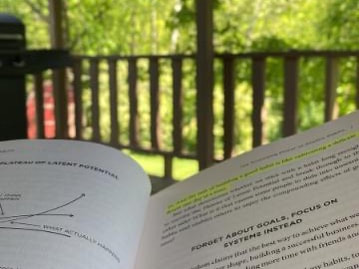
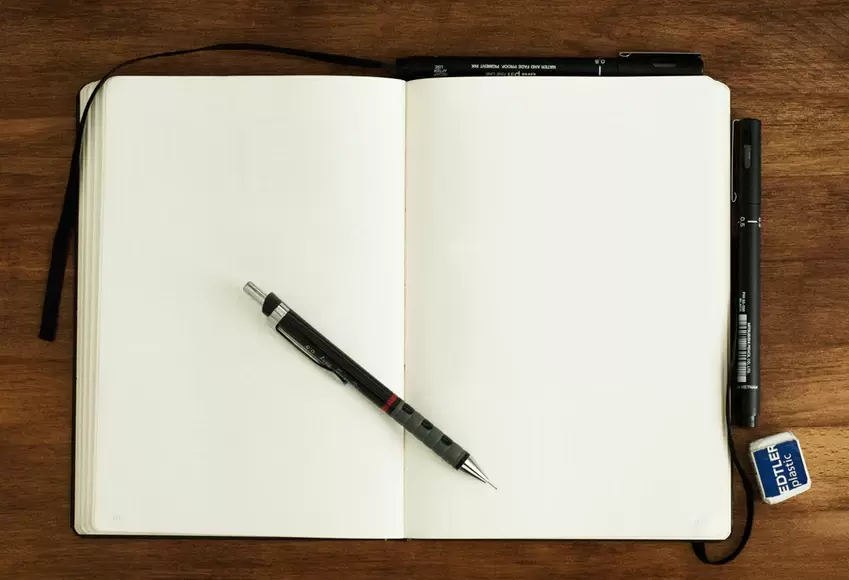

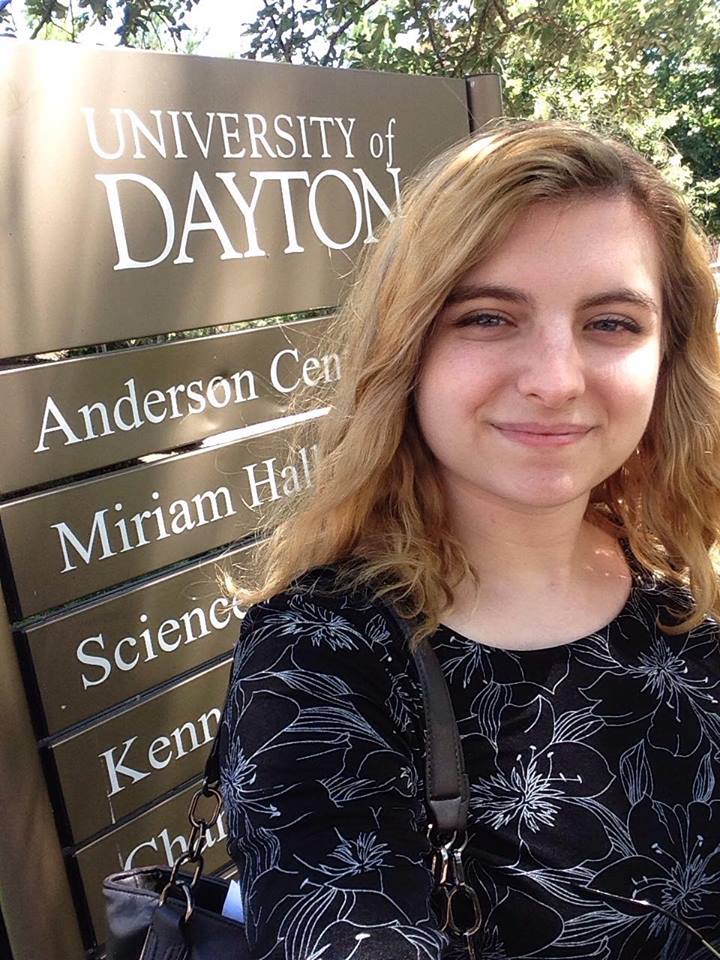

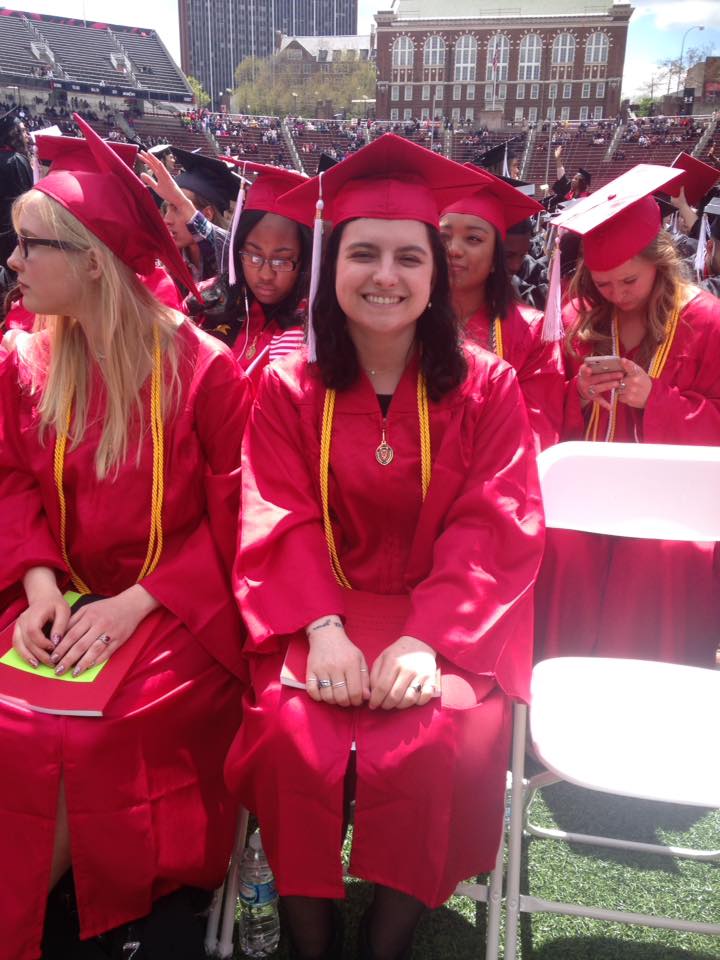
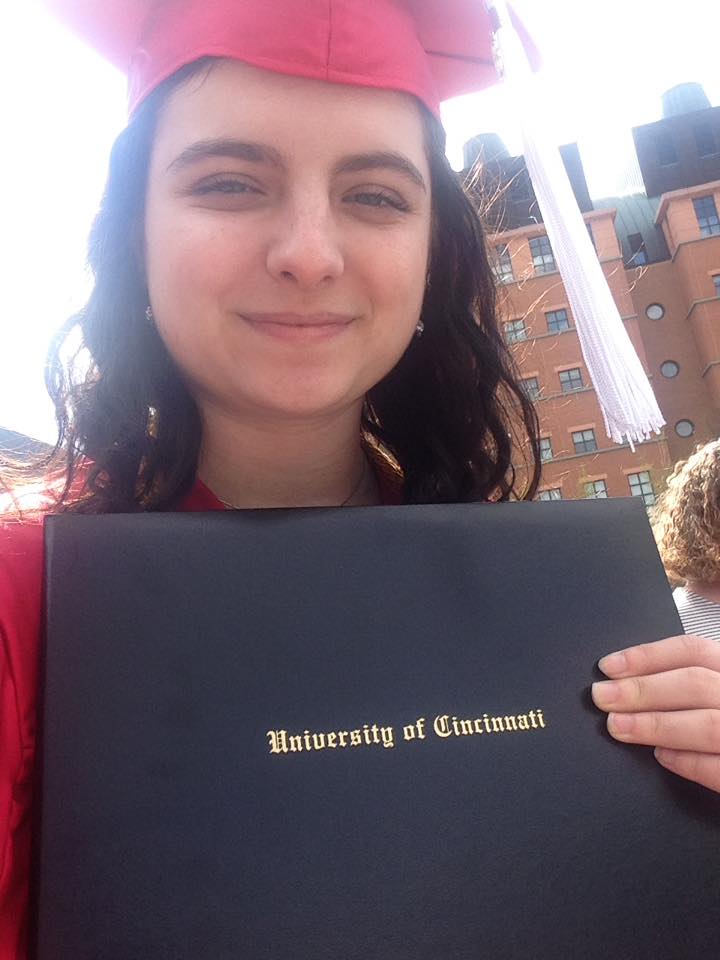

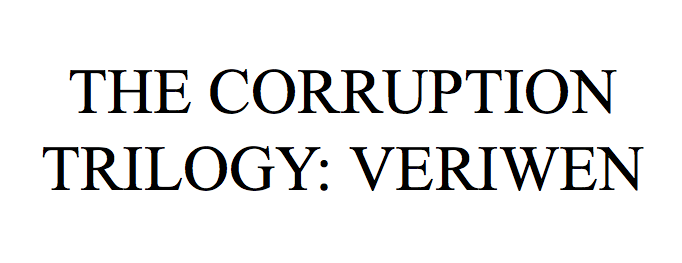
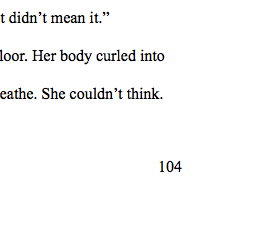
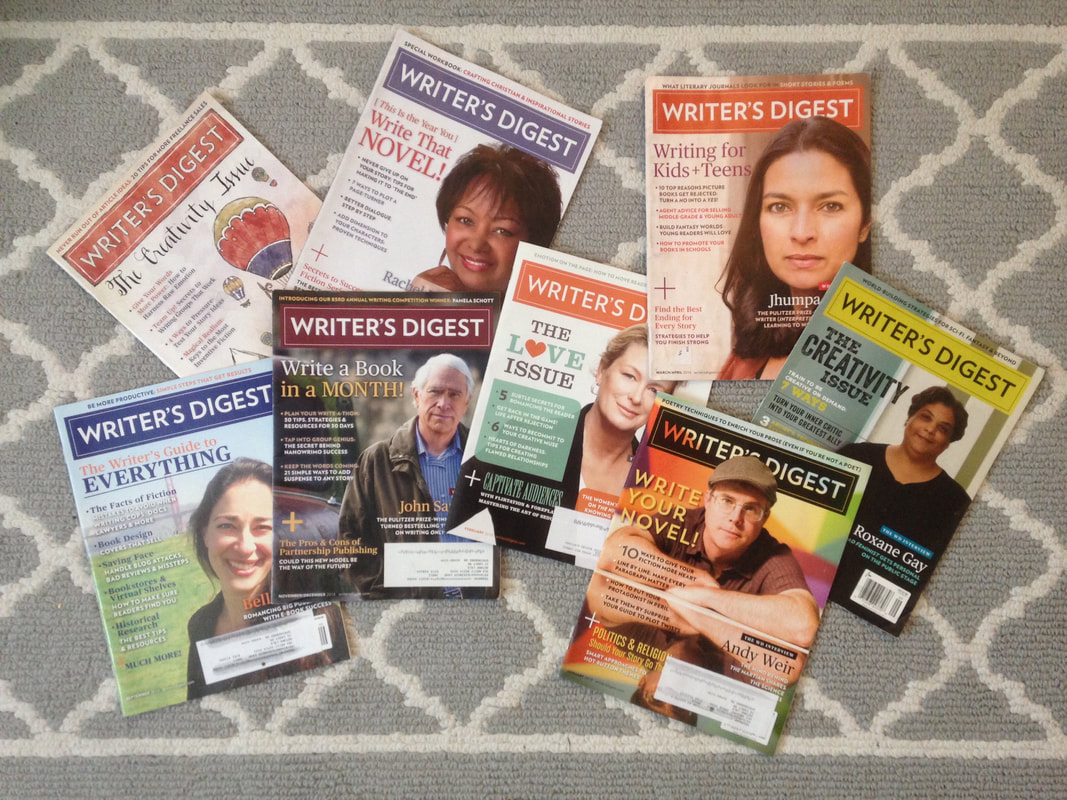
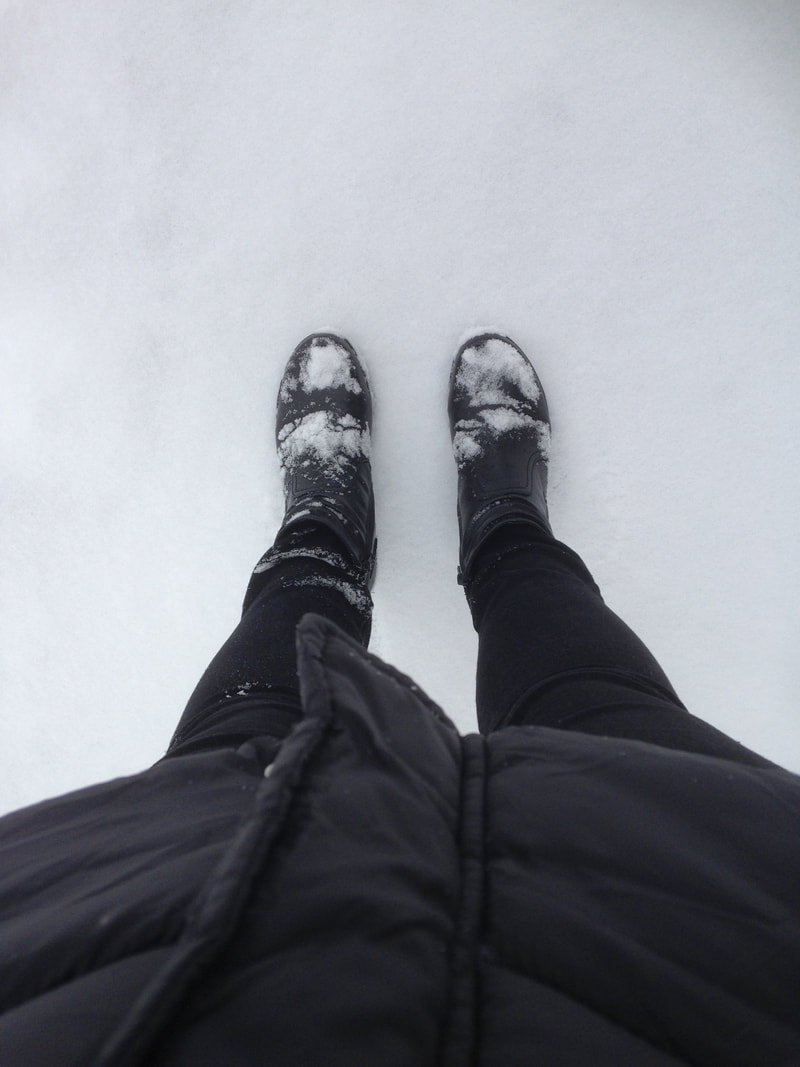
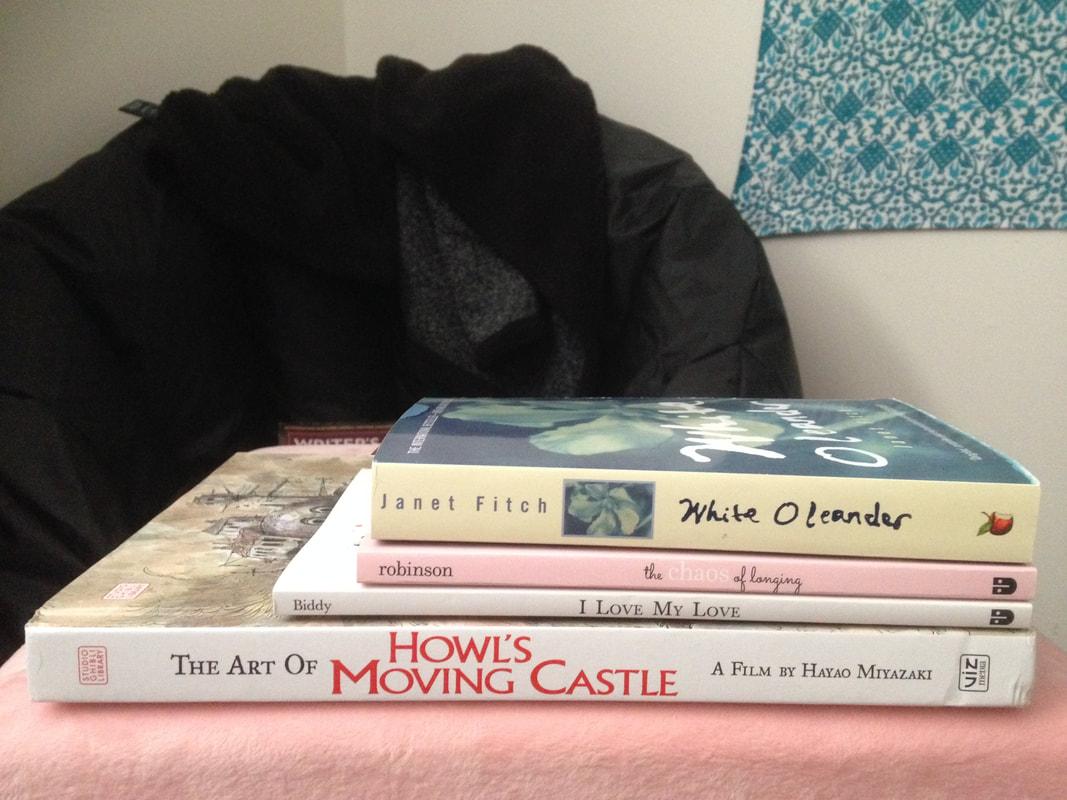
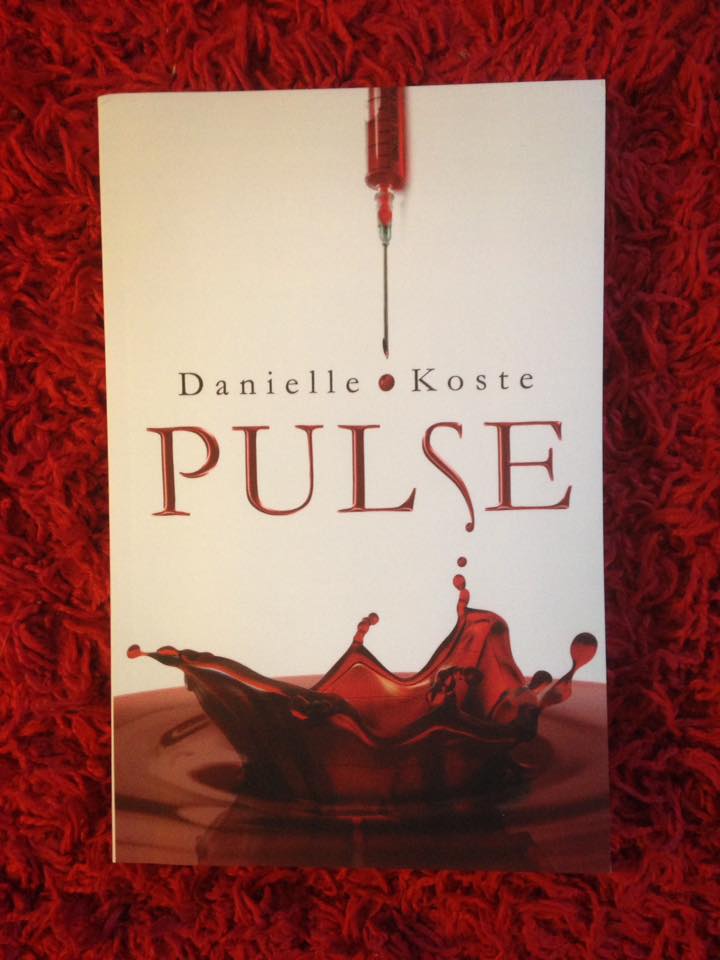
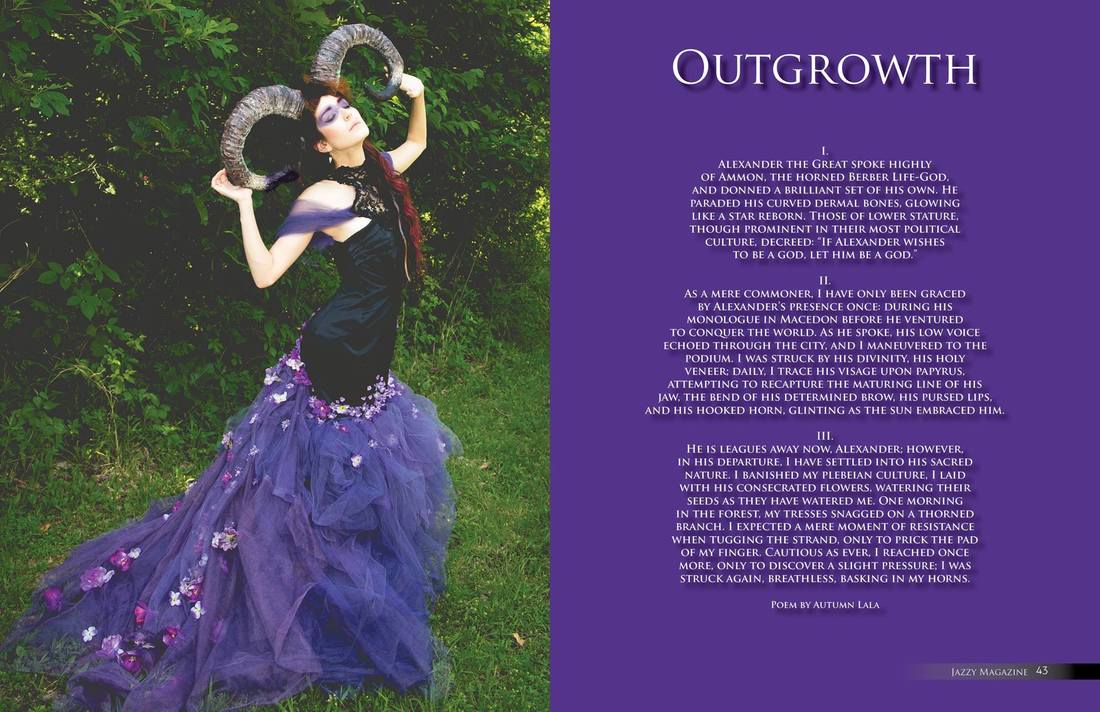
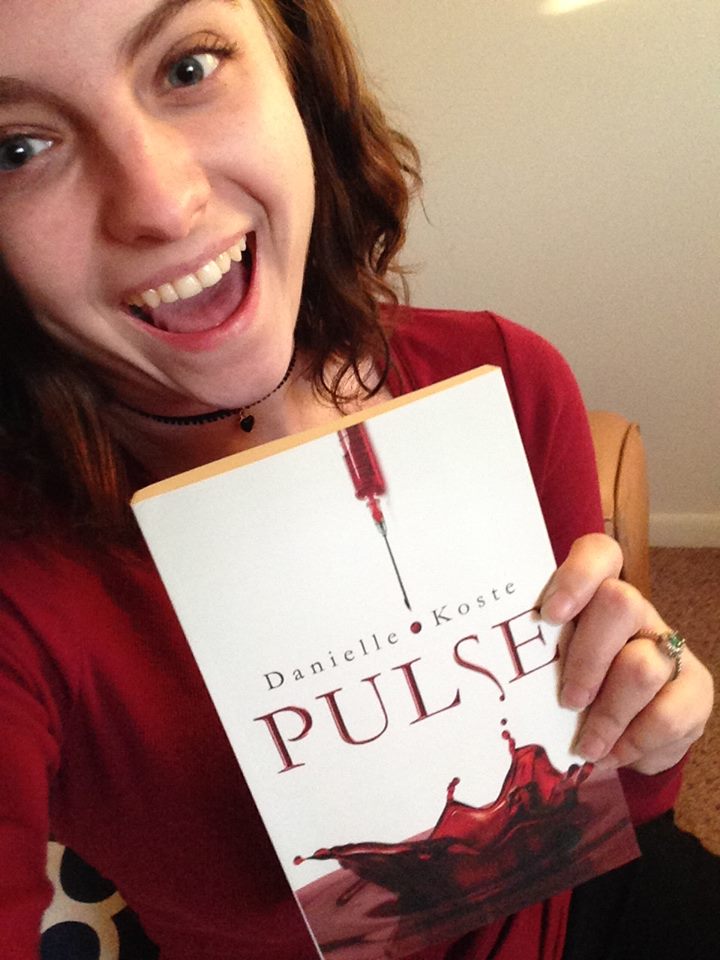
 RSS Feed
RSS Feed
